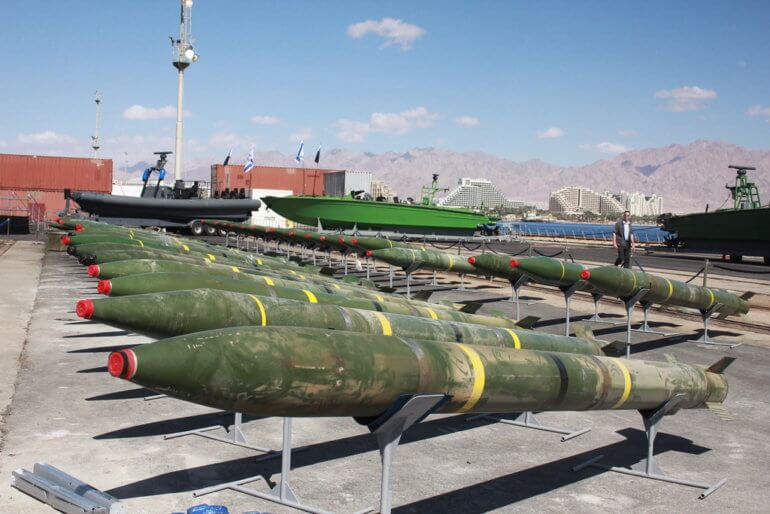
How Should We Respond To Iran’s Threat Of War On Tisha B’Av?
Dear Jew in The City,
How should we respond to Iran’s threat of war on Tisha B’Av?
Sincerely,
Yosefa
–
Dear Yosefa,
Thanks for your question. This is a very serious matter, so I’m going to play against type this time by not cracking any jokes.
Tisha b’Av is a day of communal mourning. On it, we cry for the national tragedies that have befallen our people over the millennia — primarily the destruction of the two Temples, but not exclusively. When we cry, what we’re doing is crying out to Hashem, our Father in Heaven, from the pain in our souls. The Talmud (Brachos 32b) tells us that the gates of prayer are sometimes locked, but the gates of tears are always open.
To illustrate this point, I’m going to share a very personal story that I don’t think I’ve written about publicly before.
Covid got me bad. I spent the first six weeks of 2021 in the hospital, and I was bedridden for months after I got home. The doctors and nurses were great, and I am grateful for the care I received, but we do believe in utilizing the spiritual approach in addition to medical treatment. So, while I was in the hospital, hooked up to high-flow oxygen and hoping to avoid intubation (and possible death), different people did things as a merit for my recovery. My wife sponsored a day of learning in the yeshiva where she works. The women who learn Nach Yomi (a chapter of Bible a day, a program I was involved in initiating) recited Tehillim for me. I myself used my time in the hospital bed to write a seven-part series about the mitzvah of Shnayim Mikra v’Echad Targum, studying the weekly Torah portion twice in the original text and once in the Aramaic translation/commentary of Onkelos (which is said to be a merit for long life). I can’t tell you to what extent any or all of these efforts contributed, but there’s one that I feel confident helped.
Before I get to that, let me share with you a story from II Kings chapter 20. The righteous King Chizkiyahu (Hezekiah) fell deathly ill. God sent the prophet Yeshayahu (Isaiah) to him with a message to get his affairs in order because he would not recover. Chizkiyahu turned towards the wall and cried. Yeshayahu was on his way out when God appeared to him. He told the prophet to return to Chizkiyahu and inform him that, since he cried, God would add fifteen years to his life.
Getting back to the hospital, one morning, about a month into my stay, I woke up early and unintentionally took a page from Chizkiyahu’s book. After weeks of denial and putting on a happy face, I let it all out. Instead of addressing my situation analytically – like asking, “What can I write that would be a merit for my recovery?” – I addressed it emotionally. And at that point I felt as if I turned a corner. (I know what some of you will say. I went to grad school; I studied psychology. I know what a catharsis is. But this was more than just me feeling better.)
Now let’s apply this to the situation in Israel. Most of us have been approaching the situation analytically: Where can I donate? What shall I daven? How can I volunteer? Those are great things, and none of us should downplay them. But how many of us have cried for Israel? You can’t plan that. You can’t think your way into it. It can only happen organically, because you actually feel the pain of our brethren.
I’m not privy to the inner workings of the universe, so I can’t prove to you that my emotional reaction played any role in my recovery, but I believe it did. Similarly, I can’t promise what impact our tears might have on the situation in Israel. But I do know this: when two regimens of remdesivir didn’t do the trick, the doctors gave me a transfusion of antibodies. They “upped” the treatment. That’s how we act with our medical treatments, and it’s only logical that that’s how we should act with our spiritual treatments. If you feel that the “medicine” we’ve been taking so far hasn’t yielded the desired results, we do have something stronger in our bags.
So, this Tisha b’Av, cry for Israel. Though God sometimes “closes the door to prayer” (Eicha 3:8), He doesn’t “keep silent to our tears” (Tehillim 39:13).
One final thought: Rabbi Moshe Hauer, executive vice president of the Orthodox Union, has adapted one of the Tisha b’Av kinos to reflect the events of October 7. You can download a PDF of this kinah for use on Tisha b’Av.
May Hashem speedily resolve the situation in Israel and bring us to a state of peace, tranquility and harmony.
Sincerely,
Rabbi Jack Abramowitz
Educational Correspondent
Follow Ask Rabbi Jack on YouTube
If you found this content meaningful and want to help further our mission through our Keter, Makom, and Tikun branches, please consider becoming a Change Maker today.







